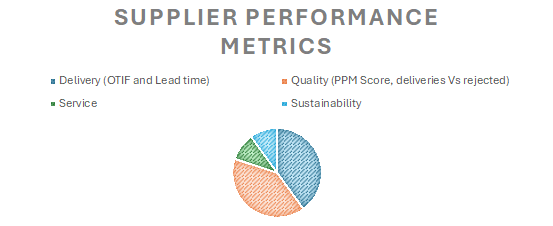
Halma Shares Apollo’s Sustainability Story
A focus on Apollo's work in environmental responsibility.
Apollo Fire Detectors specialise in the design and manufacture of high-quality fire detection solutions that protect people from fire in over 100 countries globally. Apollo aspires to be ‘thought leaders’ in the fire detection sector, driving innovation towards a sustainable future. This article will identify the ways in which Apollo are working towards a more sustainable future.
Apollo Fire Detectors specialise in the design and manufacture of high-quality fire detection solutions that protect people from fire in over 100 countries globally. Apollo aspires to be ‘thought leaders’ in the fire detection sector, driving innovation towards a sustainable future.
This article identifies the ways in which Apollo are working towards a more sustainable future, focusing on:
1. Material improvements and re-engineering
2. EPDs and LCAs
3. A sustainable supply chain
4. QR codes for installation guides
Re-engineering and material improvements
The use of integrated parts means less components are used on the boards in the Sounder product line
- Single sided solder pads can now be used, using less solder
- Less solder on the boards facilitates rework when necessary
Re-engineering the PCB board design in the Sounder product line has also reduced waste
- Boards have been redesigned from circular to rectangular
- This was possible due to the lack of LEDs in the periphery allowing the boards to be re-engineered
- This reduces waste as more boards can be cut from the same piece of material, 12 PCBs to fit per panel instead of 6
- By redesigning PCBs, Apollo avoids purchasing 2.6 tonnes of material (8,000 panels) a 56% reduction
- By redesigning PCBs, Apollo avoids 1.5 tonnes of scrap (340kg Vs 1.8 tonnes) which is a 85% reduction in waste
These improvements are expected to prevent 93.25 TCO₂e emissions — equivalent to 56.5 NYC-AMS flights.
EPDs and LCAs
An Environmental Product Declaration (EPD) is a verified document that quantifies a products environmental impact.
A Life Cycle Assessment (LCA) is a methodology for assessing broader environmental impacts associated with all the stages of the life cycle of a commercial product, process or service.
Apollo is leading the way in the UK fire sector as the first company to publish Environmental Product Declarations (EPDs). This step reflects Apollo’s commitment to transparency and sustainability—values that are increasingly expected by customers from their suppliers.
Soteria was the first EPD that Apollo have obtained getting verified in November 2024. The EPD for Soteria is cradle-to-grave and took approximately 2.5 years however, process improvements will streamline future EPD certifications.
In cases where EPDs are not yet available, manufacturers can provide embodied carbon information using TM65 forms, developed by CIBSE. TM65 estimates the carbon footprint of building services products, including fire detection systems, based on generic assumptions. While less detailed and not third-party verified, TM65 forms are a practical alternative to completely non-product-specific data, offering insights into the carbon impact of specific products.
Apollo aims to be able to offer EPDs for all systems by 2030.
A Sustainable Supply Chain
Apollo manufacture using renewable energy and energy-efficient practices, significantly reducing waste and lowering embodied carbon across its operations.
The company’s largest emissions are associated with embodied carbon—the carbon footprint tied to the production, transportation, and disposal of product or materials.
To address this, Apollo has implemented a supplier sustainability programme, developed a sustainability checklist for design engineers, and integrated life cycle assessments into product development. These initiatives ensure that sustainability is embedded from design through to delivery, supporting a lower-carbon, more circular future.
Supplier Performance is evaluated via the following:

Supplier sustainability program outcomes:
As of 2023/24, Apollo launched a supplier sustainability programme focused on its top 80% of direct spend, currently involving 19 key suppliers. Of these, 11 are already registered with EcoVadis, enabling Apollo to assess and track sustainability performance across its most critical supply partners.
- Apollo have seen high engagement from suppliers on an introductory webinar.
- Supplier performance has been evaluated and feedback delivered monthly so Apollo, and suppliers can work towards a sustainable future.
- Challenge: Many suppliers lack the maturity to provide accurate emissions data, leading to reliance on industry averages—which are often imprecise and may not reflect the true environmental impact.
Supplier Collaboration:
Apollo has established a strong partnership with Covestro, a leading supplier of raw plastic beads used in product design. Covestro’s maturity in sustainability reporting has enabled Apollo to access material-specific emissions factors—an important step in improving the accuracy of product-level carbon assessments.
In November 2024, Apollo attended the Electronica electronics fair, using the opportunity to engage directly with its highest-spend second-tier electronic manufacturers. These discussions focused on assessing suppliers’ sustainability maturity, including their Net Zero commitments and broader environmental initiatives. This proactive engagement underscores Apollo’s commitment to supply chain transparency and its leadership in embedding sustainability across all tiers of its operations.
QR Codes for Installation Guides
To mitigate environmental impact, Apollo intends to introduce digital installation guides by providing QR codes as an alternative. This project is currently in its early stages, but if successful during trials, it will result in a gradual transition of all installation guides to digital formats.
An alternative approach to the digital initiative has been seen with the recent release of Apollo’s XP95 Three Channel Input/Output Module, where the installation guide is printed on the product packaging, thereby reducing paper waste.
These initiatives align with Apollo’s broader sustainability and circular economy goals by eliminating unnecessary material usage, reducing waste, and lowering the carbon footprint associated with product installation.
Apollo Key Sustainability Achievements:
- 42% Reductions by 2030 in the Scope 1 & 2 emissions
- Zero Landfill Waste
Apollo Next Steps and Future Goals:
- Sustain 100% renewable energy and increase 7% energy productivity annually
- Scope 1 & 2 Net Zero by 2040
- Scope 3 Net Zero by 2050
- Reusable or recycled packaging by FY25
- Track product carbon footprint
Interested in learning more about Apollo's work to help contribute to a greener future? Get in touch with us today.